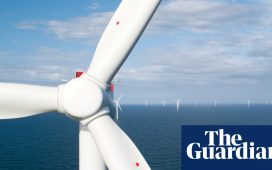
UK’s Transport Secretary travelled on the flight alongside Virgin Atlantic’s Chief Executive Shai Weiss and Virgin’s founder, Sir Richard Branson, making the carrier the first commercial airline to fly across the pond without the use of any fossil-based jet fuel.
Further, according to the UK government, the flight marks a major milestone towards making air travel more environment-friendly as the world moves towards its goal of net zero by 2050.
The historic trip is powered by fuel made from waste fats that cannot enter the food chain. Repurposing waste products into jet fuel to cut emissions provides the most immediate solution to help decarbonise skies.
In December 2022, the UK government awarded Euro 1 million in funding to Virgin Atlantic to support the industry in achieving the first transatlantic flight on a commercial aircraft powered by 100 per cent SAF.
The funding helped support fuel testing and the flight’s operational delivery while also providing an opportunity to generate important data that will accelerate SAF approval and boost our understanding of its efficiency.SAF has a greenhouse gas emissions reduction of around 70 per cent when compared to standard jet fuel over its life cycle, allowing greener travel and keeping the UK connected to the world.With the world about to convene in Dubai COP28 this week, Tuesday lays down a marker that the UK is already taking action when it comes to tackling the decarbonisation challenges that face the transport sector, the UK government said.
The government said the flight shows the future of flying, following in the footsteps of John Alcock and Arthur Brown, who flew the first non-stop transatlantic flight in 1919, opening the eyes of the world to the potential of long-haul air travel.










